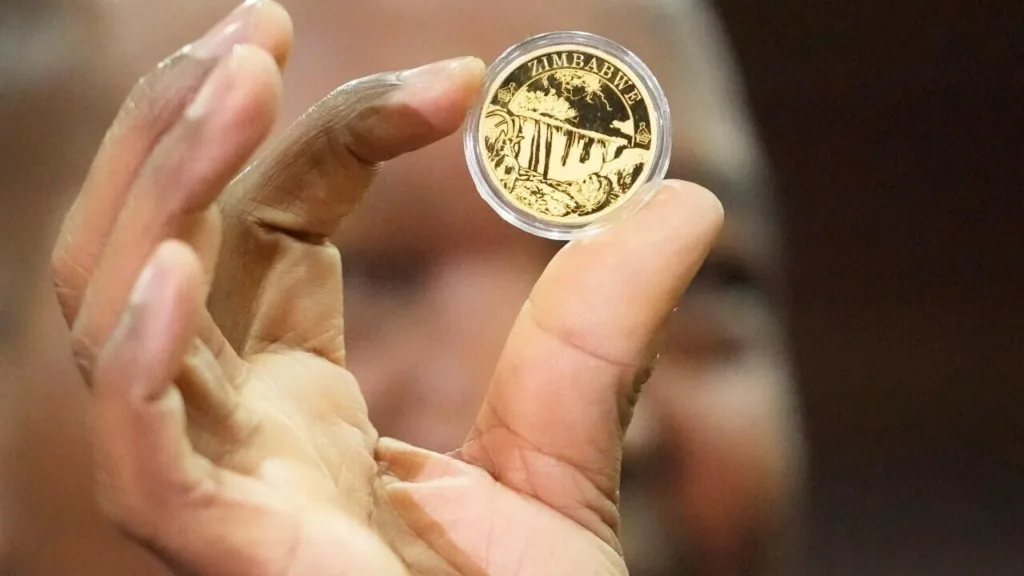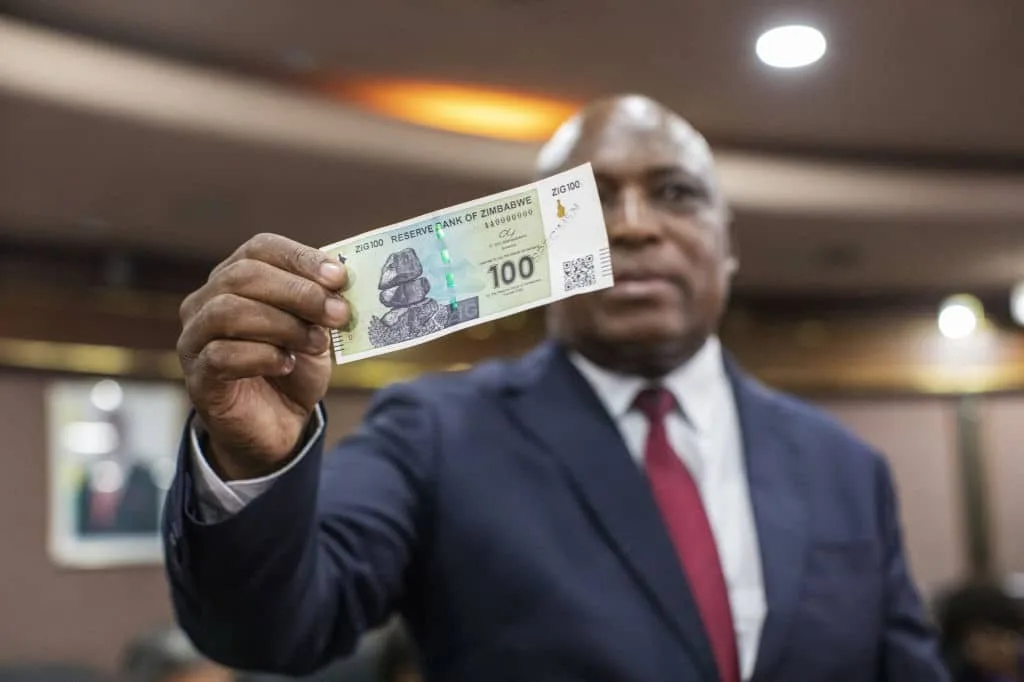Ever Since Zimbabwe has been struggling with the economic crisis, the newly crafted currency called the “Zimbabwe Gold” which is secured by gold and other currencies is expected to be the saving solution for the economy. Giving a try to both of these options is the willingness to deactivate inflation and recover public faith in the realm’s currency. Is this one upside to Zimbabwe’s using the gold currency in 2024 or not?
Here we take a look at the pros and cons of the Zimbabwe Gold in 2024;
What Is the Gold Standard?
The gold standard is the value of a country’s money that determines how much gold it holds, which determines the value of money. It is when a government agrees to convert paper money to gold at a guaranteed exchange rate. This establishes the price based on how many dollars it takes to get equal to the price of gold. This has been used by various countries before now; for England in 1821, and the US in 1819. The gold standard has helped countries to have stable exchange rates and facilitated the growth of international commerce. However, it has been strained throughout the First World War and the world’s Great Depression has caused most countries to abandon. This includes Britain in 1931 and the United States in 1971.

At present, this standard is not applied by any government, and they use fiat money. The only exception is Zimbabwe which adopted a gold-backed currency to become the first country to do so in 53 years. There are some pros and cons of the gold standard. Firstly, it could help the government to keep the exchange rates firm, and it could simultaneously press international trade expansion. Therefore, secondly, the governments may be limited in their possibilities to react to economic shocks that lead to high unemployment and volatile real output. Thirdly, the resource cost to produce gold under the full coin standard may be relatively high, and, in particular, Milton Friedman calculated that it would be over 2.5% of GDP in 1960 for the US.
Although the gold standard may seem appealing, governments are unlikely to adopt it because they consider long-term price stability and full employment to be the primary objectives of economic policy.
Key Points:
- The gold standard is the one, which defines, the currency value as being in the storage of the gold.
- Thus it was England who took the lead on the gold standard by officially adopting and recognizing it as a standard.
- The Bretton Woods Agreement fixed the US dollar to gold, being the primal reserve currency paying $35 for one troy ounce of gold.
- As a result of this, the Fortress was eventually closed off.
- Practically all governments decided to cease the use of the gold standard by 1970 when first the USA and later also the UK withdrew from it. Then in 2024, after the gold standard had been obsolete for 54 years, Zimbabwe adopted it.
- The gold standard as such was replaced by the fiat money system, where the currency is worth its weight without any physical gold holdings.
- The reason the gold standard attracts so many parties is because it can offer a possible tool for limiting the amount of money issued and preventing inflation.
- While a gold standard helps reduce inflation, rigorous adherence to it can cause economic instability and political turmoil.
Benefits of Zimbabwe’s Gold-Backed Currency
- Inflation Control: The primary goal of implementing the ZiG is to fight the problem of inflation, with the highest numbers in the last seven months coming to 55% in March of 2024. The RBZ (Reserve Bank of Zimbabwe) is hoping that establishing a stable foundation for the currency will not only increase public confidence, but it might also reduce inflationary pressures in the long run.
- Increased Confidence: The gold-backed currency may help restore faith in Zimbabwe’s economy, which has previously experienced volatility and hyperinflation. This confidence could spur investment and economic growth.
- BRICS Membership: Zimbabwe has submitted its application for the BRICS’ New Development Bank membership to increase the issuance of local currency by the organization. However, if this is achieved, Zimbabwe might be able to obtain new sources of funding and also being more stable makes the economy a goodgoal.
- Reduced Dependence on US Dollar: The introduction of gold-backed currency could enable Zimbabwe to wean itself from the US dollar. The situation right now is that the dollar is largely involved in 80% of the country’s transactions, as more belief is placed in the foreign currency than in the local one. As a result, there are chances for having a more diverse and competitive economy which is much more resilient than before.
Drawbacks of Zimbabwe’s Gold-Backed Currency
- Limited Impact: It is some think-tanks’ view that the economic policies of Zimbabwe may need to be completely revamped for the country to start making progress, rather than just a merely new currency. The SEIG efficiency in controversial issues determination is still in a question mark form.
- Gold Reserves: RBZ’s efforts in making the new currency work are going to be hinged on its capacity to maintain the required gold reserves. When gold reserves run dry or become unsustainable, there is a threat that the value of the currency might drop.
- Market Acceptance: The consumer approval of ZiG in the market is the main requirement that allows it to prosper. If companies are not working together with it and consumers are not using it, the new currency could fail to provide the benefits promised by its developers.
In conclusion, Zimbabwe’s adoption of the ZiG, which is gold-backed currency, has had a deep effect to the country’s economic status. While a BRICS membership, lower dependence on the US dollar, boost of confidence, and control over inflation seem to have a reassuring effect, the risk is precisely this confidence and newly found control over the economic process as it grows. Nonetheless, tons of factors are to be taken into consideration for the ZiG be fruitful, these are retaining enough gold on hand by the RBZ, market acceptance and solving the underlying economic problems. Although only the future can confirm whether ZiG will contribute to the betterment of Zimbabwe in 2024 and beyond, it is evident that it possesses significant potential to drive economic growth and empower Zimbabwe’s entrepreneurs.














